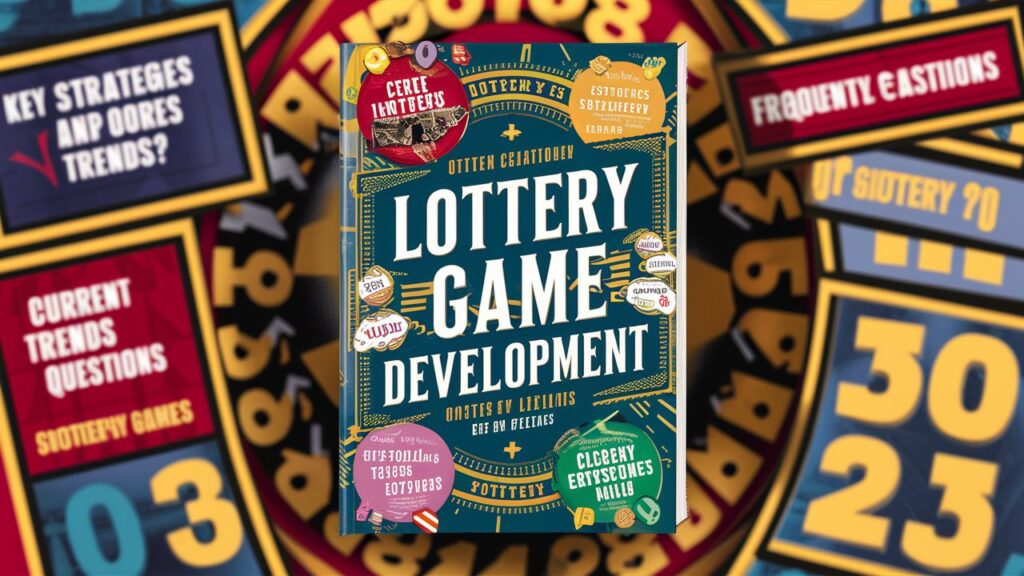Introduction to Lottery Game Development
The lottery industry has evolved dramatically over the past decade, driven by advancements in technology and shifting player expectations. As a result, lottery game developers are tasked with creating engaging, secure, and innovative games that captivate audiences while adhering to strict regulatory standards. Whether you’re a startup or an established brand, understanding the intricacies of lottery game development is critical for success. This article explores the essential components of designing and launching a lottery game, from conceptualization to post-launch strategies, and answers common questions about the process.
1. Core Elements of Lottery Game Design
Lottery game design is the foundation of any successful product. Developers must prioritize user experience (UX) and game mechanics to ensure players remain engaged. Key elements include:
- Random Number Generation (RNG): The backbone of fairness in lottery games. RNG systems must be certified to guarantee unbiased outcomes, fostering trust among players.
- Prize Structures: Designing tiered prize systems that balance affordability for operators and excitement for players.
- Themes and Visuals: Incorporating visually appealing graphics and themes (e.g., seasonal, cultural, or branded content) to differentiate games in a crowded market.
- Accessibility: Ensuring games are compatible with multiple platforms (mobile, desktop, retail terminals) and accessible to players with disabilities.
A well-designed lottery game combines these elements to create a seamless, immersive experience that keeps players returning.
2. Integrating Technology in Lottery Game Development
Modern lottery games rely on cutting-edge technology to enhance functionality and security. Blockchain, for instance, is revolutionizing transparency by enabling immutable transaction records. Meanwhile, artificial intelligence (AI) helps personalize player experiences through data-driven insights, such as tailored promotions or predictive analytics for jackpot trends.
- Mobile Optimization: With over 60% of lottery tickets now purchased via mobile apps, developers must prioritize responsive design and fast load times.
- Cloud-Based Solutions: Cloud technology allows operators to scale games effortlessly, manage high traffic during jackpot surges, and deploy updates in real time.
- APIs and Third-Party Integrations: Seamless integration with payment gateways, age verification tools, and geolocation services ensures compliance and operational efficiency.
Adopting these technologies not only future-proofs your games but also elevates player trust and satisfaction.
3. Regulatory Compliance and Security Measures
Navigating the legal landscape is one of the most challenging aspects of lottery game development. Developers must adhere to gaming regulations that vary by jurisdiction, such as age restrictions, prize payout limits, and anti-money laundering (AML) protocols. Key considerations include:
- Licensing: Partnering with legal experts to secure licenses in target markets.
- Data Protection: Implementing SSL encryption and GDPR-compliant practices to safeguard player information.
- Audit Trails: Maintaining detailed logs of transactions and RNG outcomes for regulatory audits.
Failure to comply can result in hefty fines or loss of licensure, making compliance a non-negotiable pillar of development.
4. Marketing and Monetization Strategies
Even the best lottery games require robust marketing to succeed. Developers should collaborate with operators on strategies such as:

- Social Media Campaigns: Leveraging platforms like Facebook and Instagram to run viral challenges or teaser campaigns for upcoming jackpots.
- Loyalty Programs: Rewarding frequent players with exclusive perks, such as bonus tickets or early access to new games.
- Dynamic Pricing Models: Offering flexible ticket pricing (e.g., discounts for bulk purchases) to attract diverse demographics.
Monetization extends beyond ticket sales; partnerships with advertisers or sponsorships for special-edition games can unlock additional revenue streams.
5. Future Trends in Lottery Game Development
The industry is poised for transformative changes, with trends like virtual reality (VR) lotteries and tokenized prizes (e.g., NFTs) gaining traction. Developers are also exploring:
- Skill-Based Elements: Hybrid games that blend luck with mini-games to appeal to younger audiences.
- Sustainability Initiatives: Digital-only tickets and carbon-neutral jackpot events to align with eco-conscious values.
- Global Collaboration: Cross-border lotteries with pooled jackpots, enabled by unified regulatory frameworks.
Staying ahead of these trends will separate industry leaders from competitors.
Conclusion: Building a Winning Lottery Game
Creating a successful lottery game demands a blend of creativity, technical expertise, and strategic planning. From prioritizing RNG-certified design to embracing blockchain and AI, developers must innovate relentlessly to meet player demands and regulatory requirements. By focusing on user-centric design, robust security, and forward-thinking marketing, your game can carve a niche in this dynamic industry. Partnering with experienced lottery game developers ensures access to the tools and insights needed to thrive.
Frequently Asked Questions (FAQs)
Q1: How much does it cost to develop a lottery game?
A: Costs vary based on complexity, ranging from
50,000forbasicgamesto
50,000forbasicgamesto500,000+ for multi-platform, feature-rich solutions. Factors include licensing fees, technology stack, and post-launch support.
Q2: How long does lottery game development take?
A: A typical timeline is 6–12 months, including design, testing, and compliance certification. Complex projects with custom features may take longer.
Q3: What legal requirements apply to lottery games?
A: Requirements depend on the region but generally include age verification, RNG certification, tax compliance, and adherence to AML laws. Always consult legal experts.
Q4: How do you ensure fairness in lottery games?
A: Use certified RNG systems, undergo third-party audits, and publish fairness reports to maintain transparency.
Q5: Can lottery games integrate with existing platforms?
A: Yes! APIs allow seamless integration with payment processors, loyalty programs, and retail systems.
By addressing these elements, lotterygamedeveloperscom can deliver games that resonate with players and stand the test of time.
